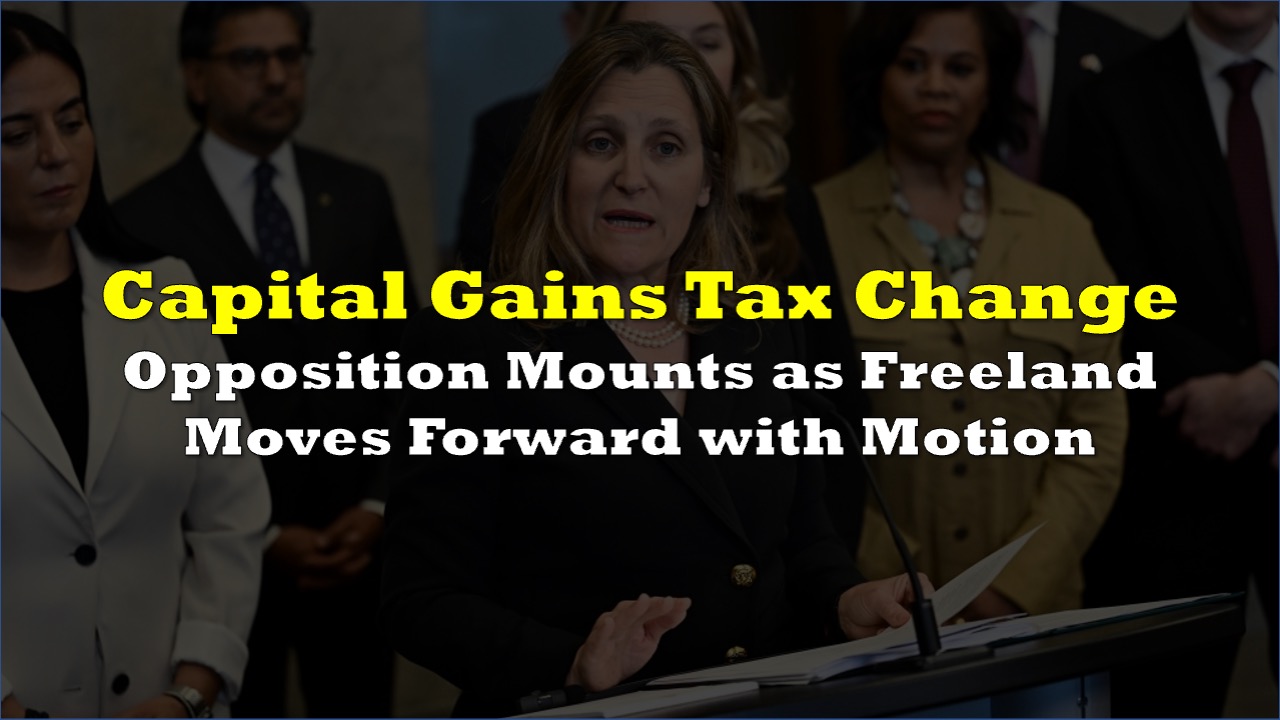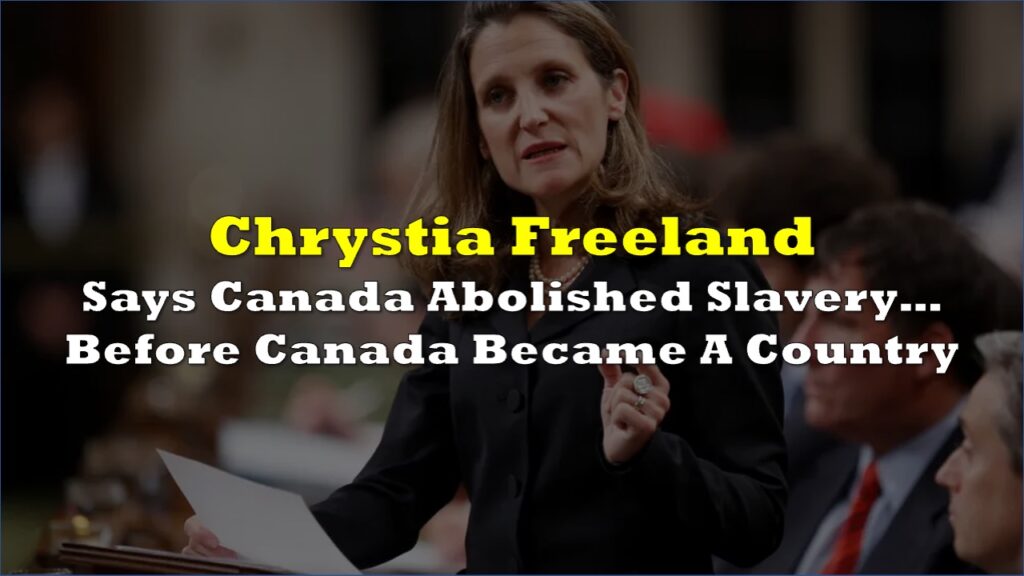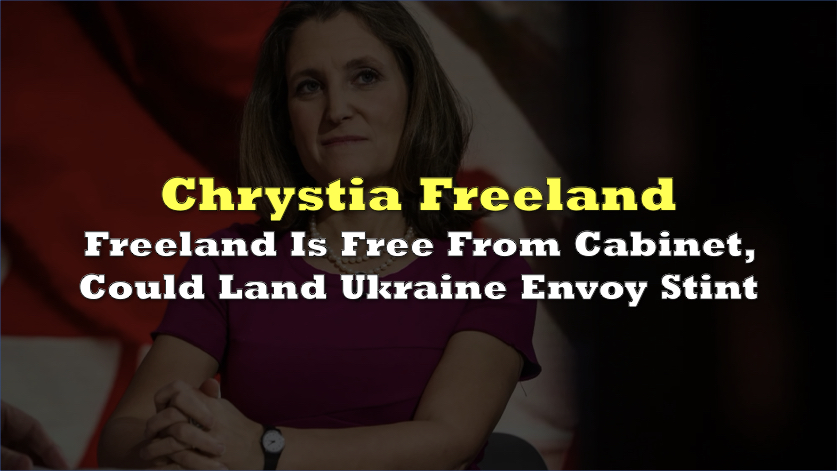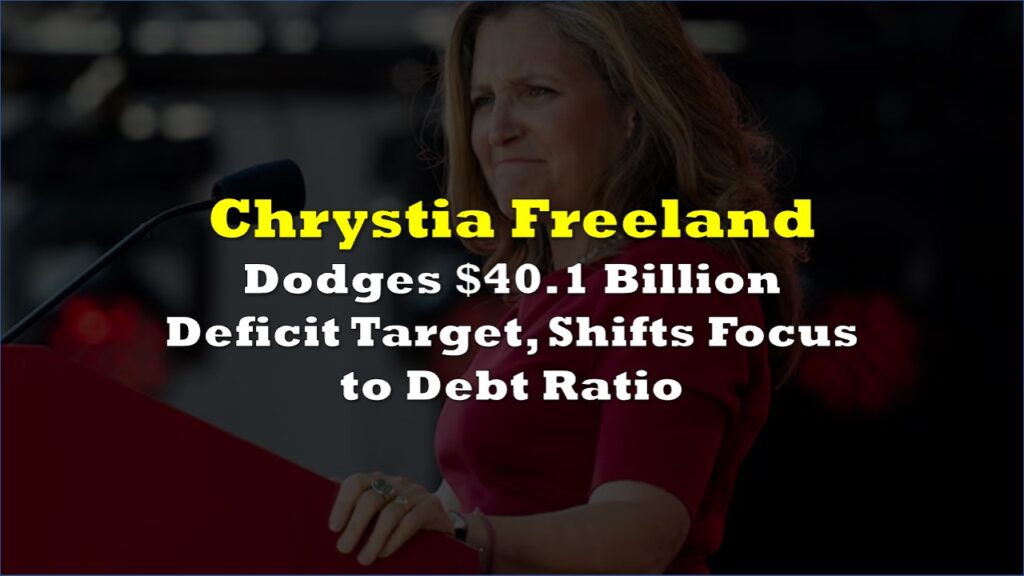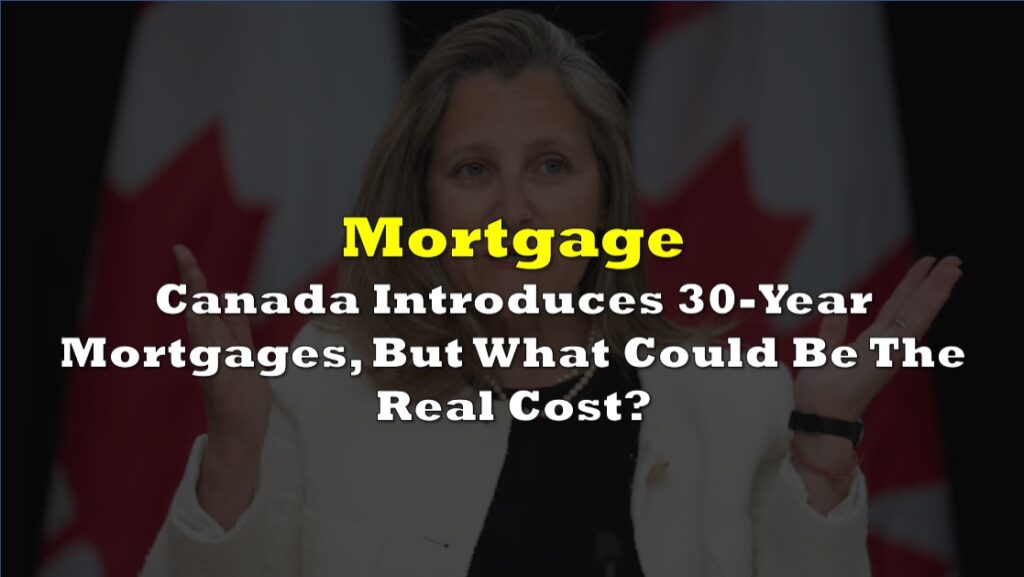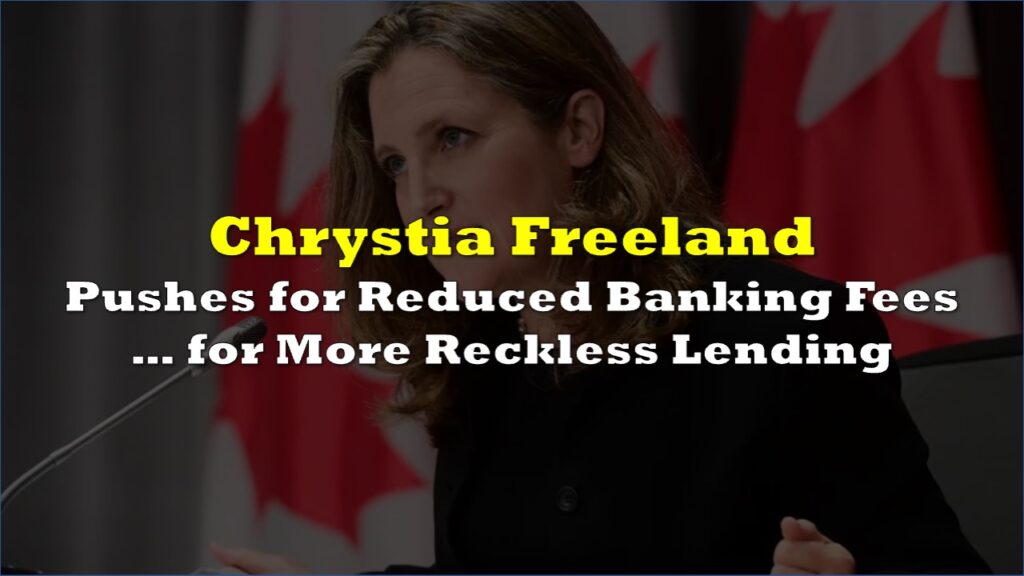Finance Minister Chrystia Freeland on Monday introduced a motion in the House of Commons to implement changes to the capital gains tax, as promised in the spring budget. The motion aims to increase the “inclusion rate” from one-half to two-thirds on capital gains above $250,000 for individuals.
During a press conference following the tabling of the motion, Freeland pushed the importance of “tax fairness,” claiming, “Many of the wealthiest Canadians make most of their money through investments, not income. But because of how investment gains are taxed, well-off Canadians can wind up paying a lower marginal tax rate than a nurse or a plumber. That’s not fairness, that’s favoritism.”
The finance minister also stressed the need for revenue generated from this change to invest in critical areas such as pharmacare, dental care, child care, and the green energy transition. “The fair way to finance them is with tax fairness. That’s what we’re doing,” Freeland said.
She urged Canadians to closely monitor how all MPs vote on this matter, saying, “I do think this is a moment when Canadians should be watching closely what happens in the House and watching closely to see how all MPs vote on this.”
Conservative Leader Pierre Poilievre’s press secretary, Sam Lilly, criticized the capital gains changes, calling them “a tax on health care, homebuilding, small businesses, farmers and people’s retirements.”
Lilly claimed that the measure is being introduced to pay for the “inflationary spending announced in the latest budget.” He added that “Conservatives will study the motion very carefully before determining next steps.”
The changes, which will come into force on June 25 due to a ways and means motion, are expected to generate nearly $20 billion in revenue for the government over the next five years. However, other promised changes, such as a lifetime exemption for entrepreneurs, will be introduced in separate legislation this fall.
Freeland defended the competitiveness of Canada’s tax system, noting that “Capital gains remain taxed in Canada at a lower level than in jurisdictions like California or New York City, and the rate remains lower than it was throughout the 1990s, a period, I might add, of strong economic growth in Canada.”
She also claimed that provinces will receive approximately $12 billion due to the tax changes and suggested that provincial governments could invest this money in the health system. “I would invite Canadians who feel that our doctors should be paid more to suggest that provinces and territories should be using some of that revenue to increase the actual salaries,” Freeland said.
This swipe was likely a response to the criticism coming from Minister of Small Business Rechie Valdez recently admitting that the change in capital gains tax could chase doctors out. Valdez was asked about the possible consequences of such increases on the healthcare sector, particularly family doctors, to which she said “We recognize that. But one of the things we will continue to do is to encourage foreign credential recognition.”
A response that, according journalist Matt Gurney, was basically the minister “acknowledging that the tax change may drive doctors out, without acknowledging that it will also change the economic calculus of those we wish to recruit in order to offset the loss.”
Canada's Finance Minister Chrystia Freeland, in support of the Liberal's new capital gains tax, goes on incredibly inappropriate classist rant and ends with a threat:
— Kirk Lubimov (@KirkLubimov) June 10, 2024
"…do you want to live in a country where these at the very top live lives of luxury but must do so in gated… pic.twitter.com/stGVBUBLC9
The change has many critics, and so does Freeland’s statement, which many called a threat. Gurney slammed Freeland’s recent statements saying that if he “were to write about Canada in these terms in a column, I’d have Liberals accusing me of hyperbole and doom-mongering and being down on Canada.”
The funniest part about this statement by Freeland is that if I were to write about Canada in these terms in a column, I'd have Liberals accusing me of hyperbole and doom-mongering and being down on Canada.
— Matt Gurney (@mattgurney) June 10, 2024
This is Freeland on Canada after she's been in cabinet for NINE YEARS! https://t.co/QyDVUFDwj2
"We've been in charge for 9 years and now realize we've caused economic ruin. I am officially threatening today that it will get worse if you don't pay higher taxes" https://t.co/AG5aU37aFr
— Jason Lietaer (@jasonlietaer) June 10, 2024
Politicians are flying across 🇨🇦 to ask if you want to live in a world where the rich live by a different set of rules, and have no regard for the environment.
— Stephen Punwasi 🏚️📉🐈☃️ (@StephenPunwasi) June 10, 2024
Unclear if they’re asking rhetorically or if that’s the platform they’re offering.
Business groups and organizations representing doctors have also previously denounced the tax change. It has also been criticized by Bill Morneau, Trudeau’s former finance minister, who said that it would have a “chilling effect” on the future of investment in the country. Former Bank of Canada governor David Dodge meanwhile called it “the worst [budget] since 1982.”
After listening to @cafreeland buckle up, more taxes coming, next up WEALTH TAX.
— Martin Pelletier (@MPelletierCIO) June 10, 2024
Information for this story was found via the sources and companies mentioned. The author has no securities or affiliations related to the organizations discussed. Not a recommendation to buy or sell. Always do additional research and consult a professional before purchasing a security. The author holds no licenses.

